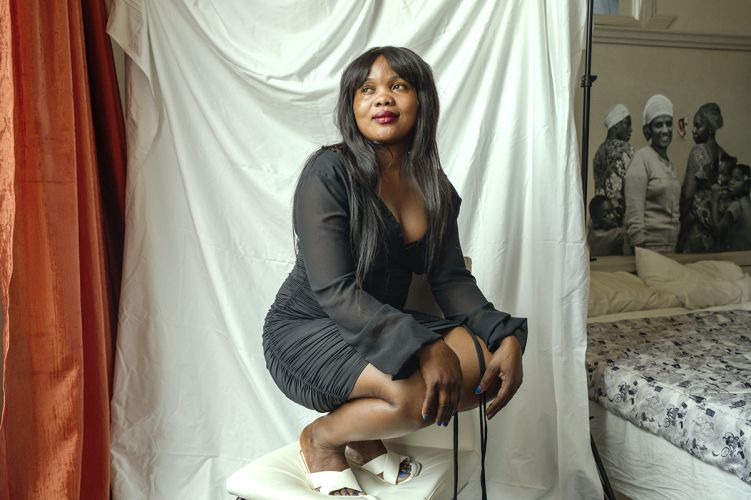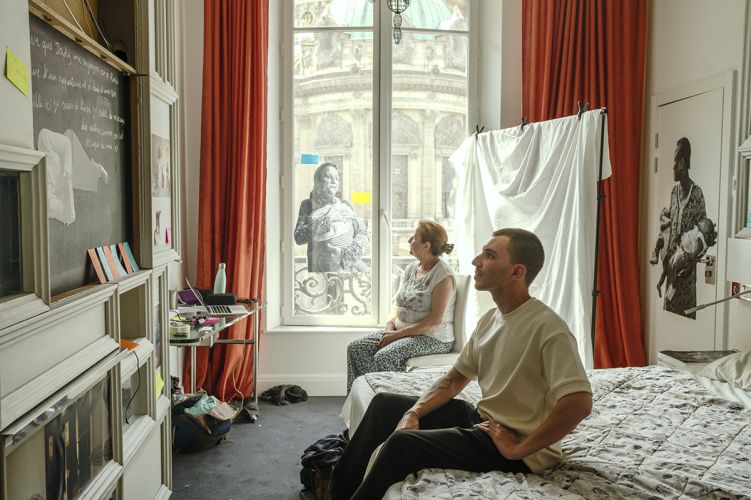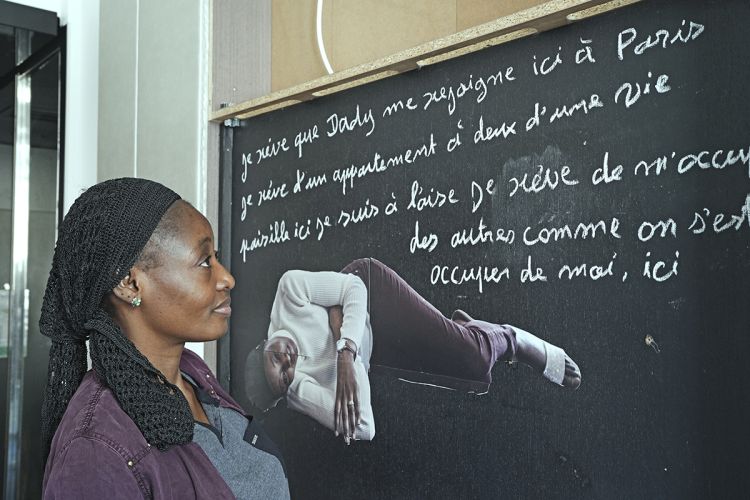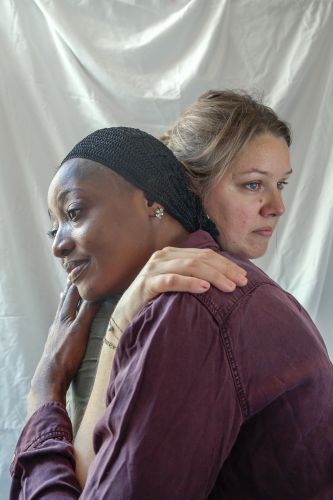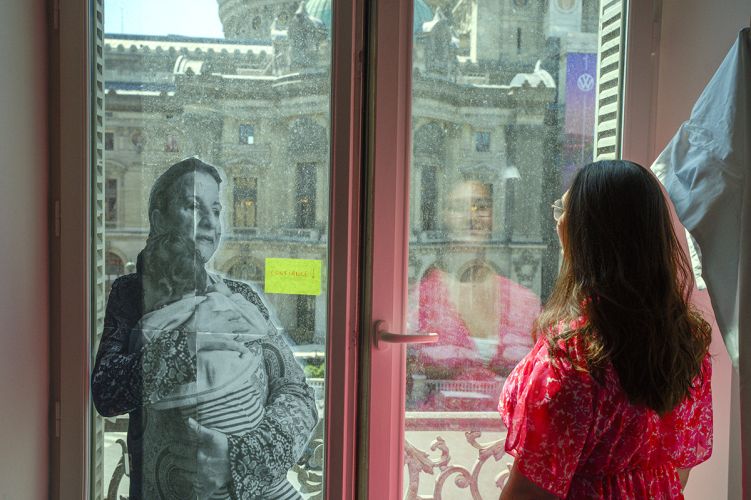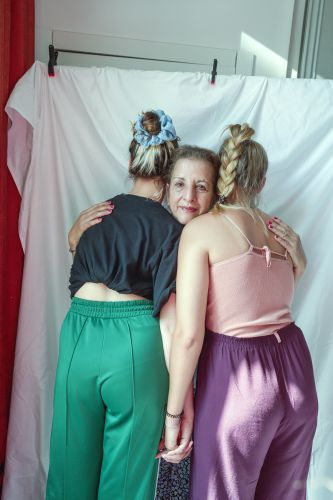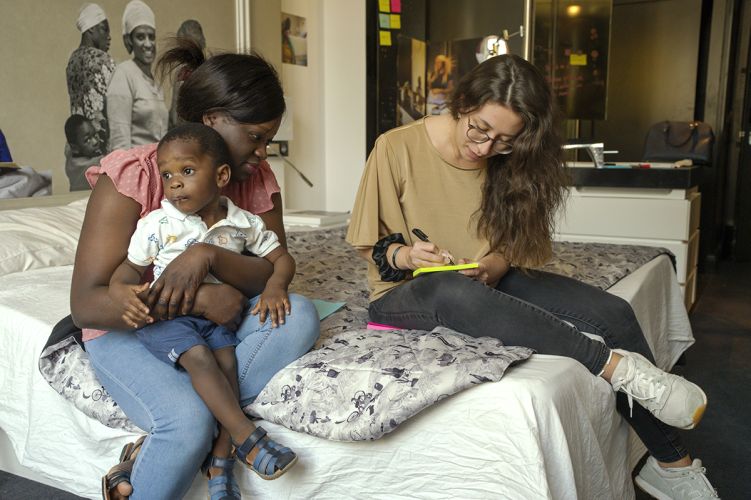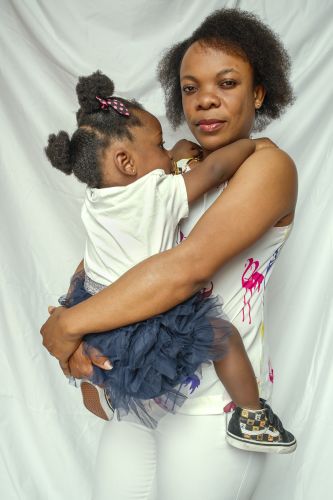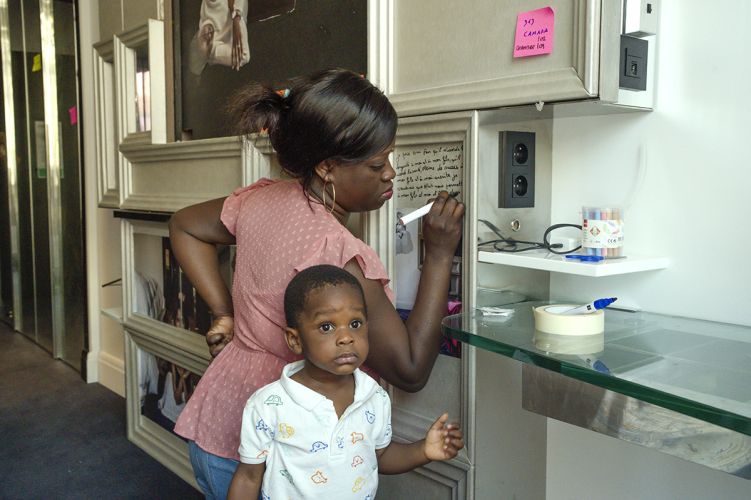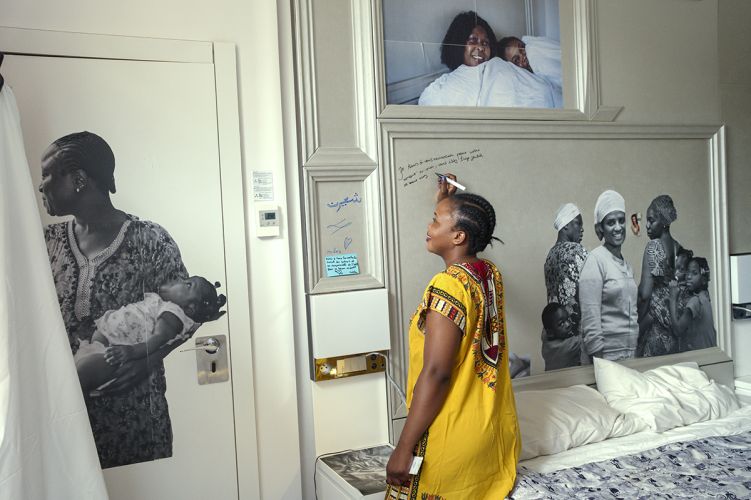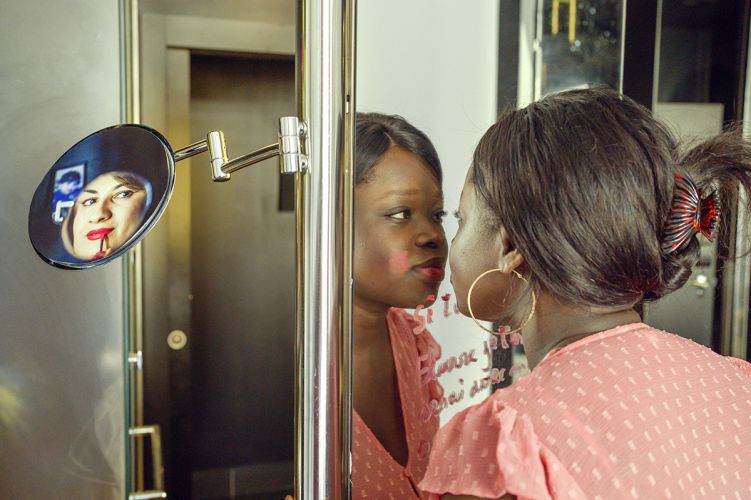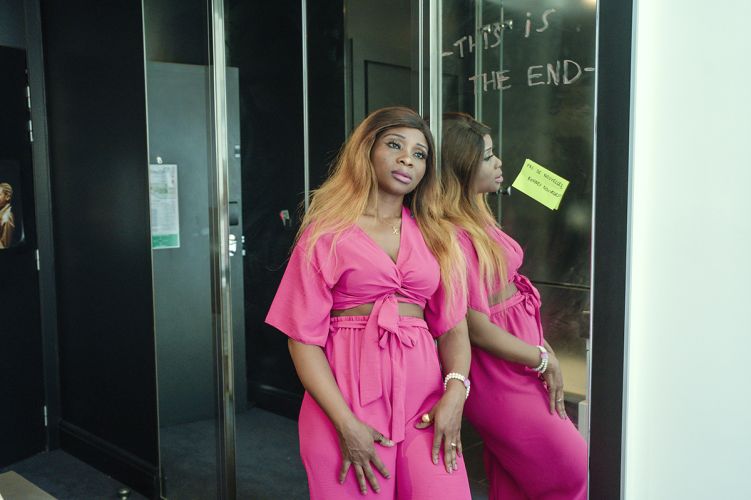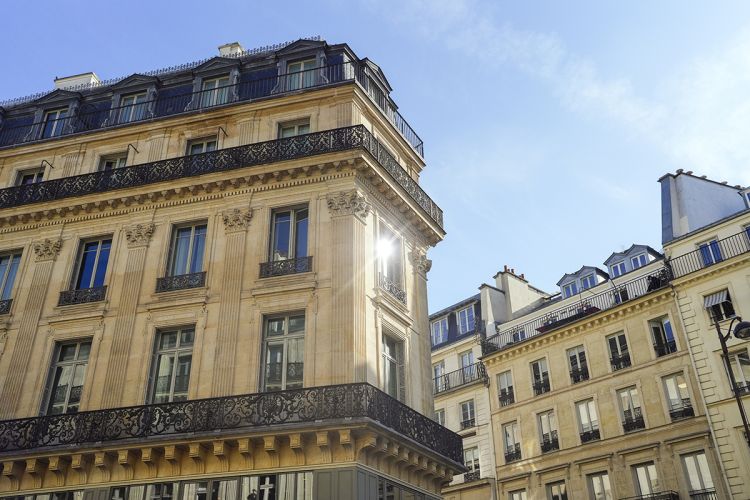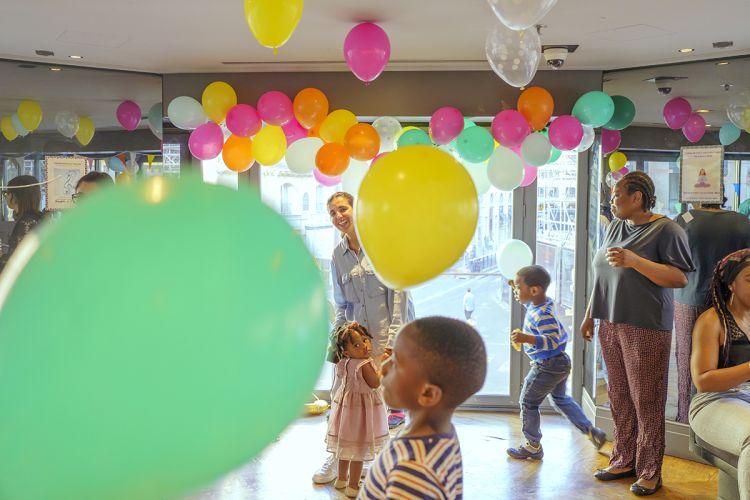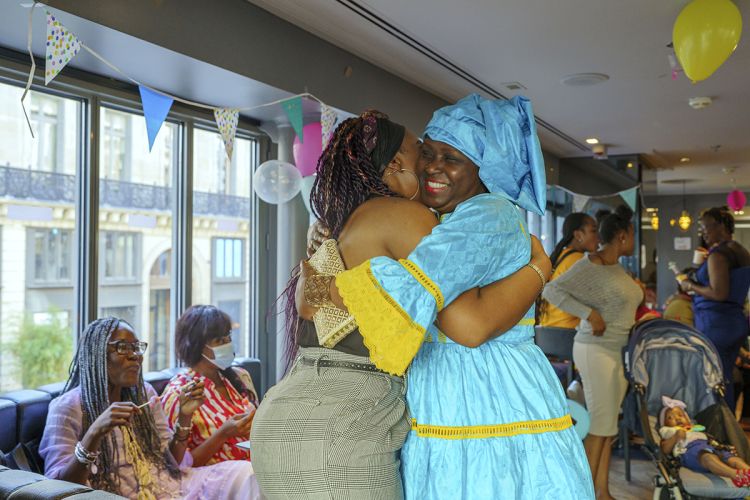A room with a view
-
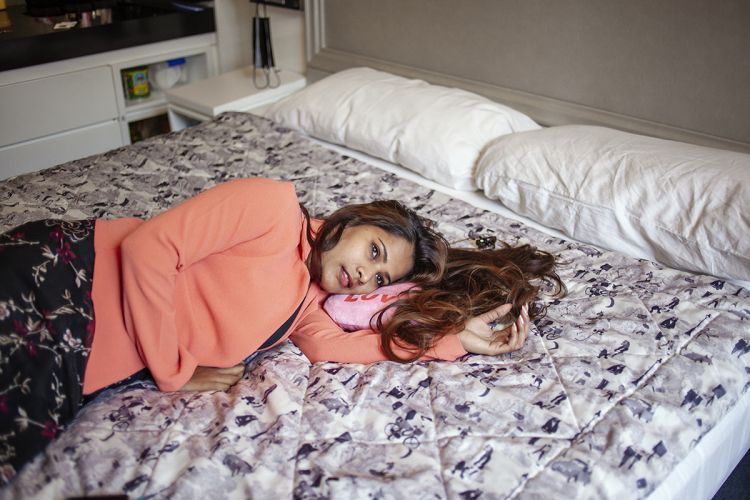

Sadhana, a young Indian woman of 31 marvels at the view over the Haussmannian avenues from her king size bed. She confides: “I can’t believe I live here”. “Paris is a magnificent city, it deserves its reputation as a city of light”, she smiles gently. For this former beautician, nothing or almost nothing in her room displays the vestiges of her life in India.
Two days after taking this photo, I met Sadhana again, suitcases in hand. She will be extradited urgently and with the utmost discretion to another emergency shelter. Her husband, accused of pimping, was released by the police and unfortunately found her the day before -
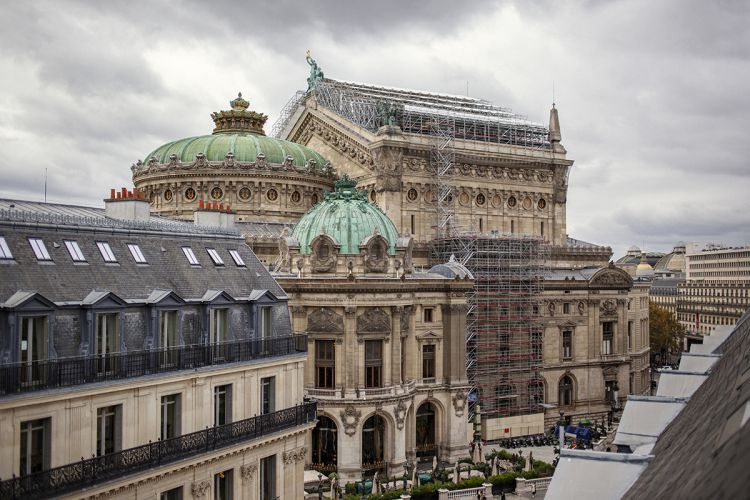

View of the Opéra Garnier from room 501 where Henriette lives with her two twins, aged 3 and her eldest, aged 6. Two of her children have autism.
Following the closure of the palace because of the Covid-19 pandemic, the building was bought by the company Biexée Assembly. This property manager wanted to make the place available to a public of “women in great vulnerability”, for a period determined in advance: one year. Twelve months may seem short, but the owner has another real estate project in mind for the future and the future of these residents remains uncertain. The next stage is likely to be difficult for these women, who will be forced to leave the center in less than six months. Although 13% of the women have been regularized, 21% of them are still waiting for their application to be regularized and 41% have no solution for regularization. -
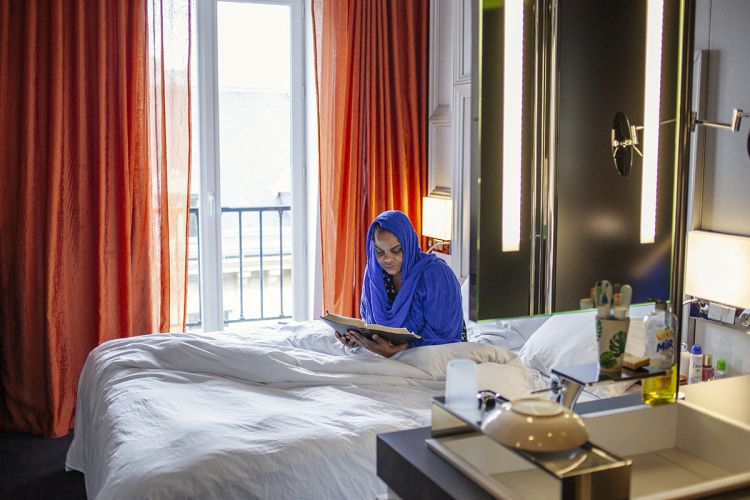
 A moment of reading for Alphonsine in her spacious room. On the wall, there are memo cards to learn French. Here, the alphabet. There, the numbers. Here intimacy, relaxation and reconstruction are the order of the day. She uses the time to read, to learn French in order to find a job quickly and to help her children who have stayed behind.
A moment of reading for Alphonsine in her spacious room. On the wall, there are memo cards to learn French. Here, the alphabet. There, the numbers. Here intimacy, relaxation and reconstruction are the order of the day. She uses the time to read, to learn French in order to find a job quickly and to help her children who have stayed behind. -
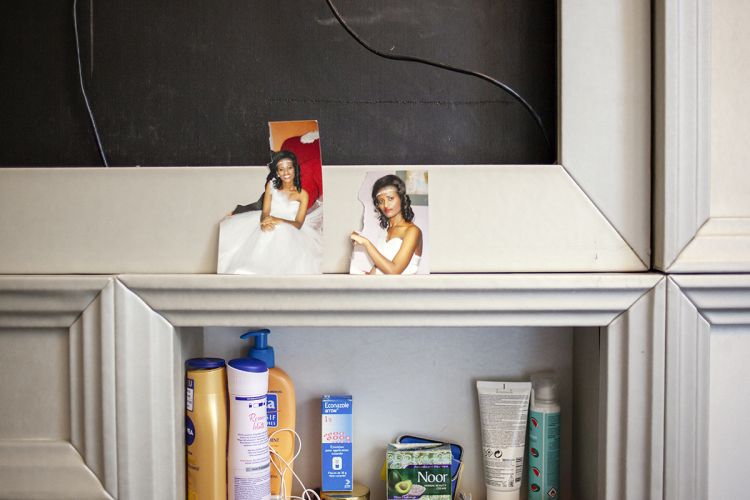

Seble, an Ethiopian exile, fled her marriage after many years of violence. With a smile on her face, she confides that for her the day of her wedding is the most beautiful day of her life, the second, her arrival in France. Memories to destroy in order to rebuild here.
-
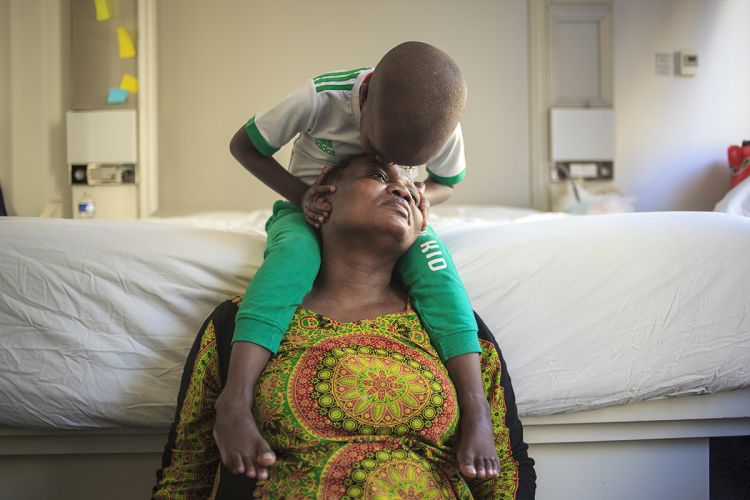

Mariama from the Comoros undertook a long journey to try to find treatment for her five-year-old son, Laithe. First, Tanzania, where her toddler had three operations for polyps. “When the doctors told me there was no way out, we went to Mayotte. There, during the crossing on a crowded kwassa kwassa (fishing boat), I thought he would die”. She pauses, tremors in her voice, before resuming. “He was not breathing. I cried a lot, and then he got better. After yet another transit through Reunion, Mariama arrived in France with her son, where he was taken care of. Today, Laithe is much better, but he has to take medication for life.
-
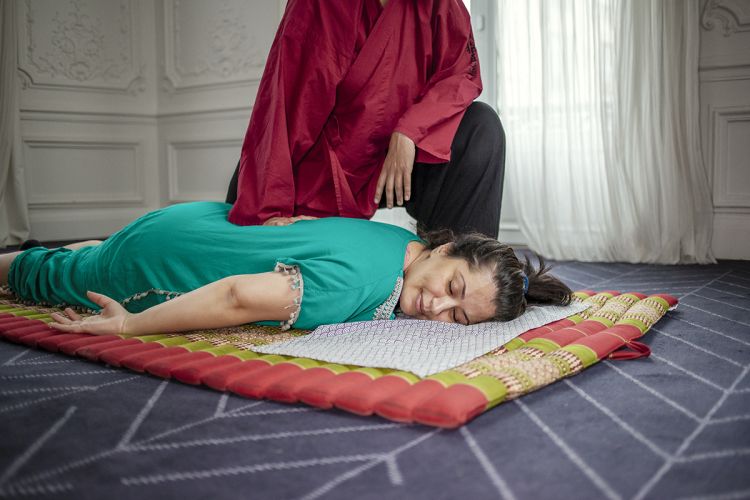

For Sabrina, a young Algerian single mother of a three-month-old girl, massage sessions are a must. She finds serenity there. On maternity leave and waiting for social housing, this young security guard with a permanent contract is learning day by day from her sisters at heart how to be a mother in her turn. The massage sessions are offered by the association Ateliers Shiatsu, which opens its clinic every Thursday afternoon from 2 to 4 pm. Émilie, the practitioner of this Japanese manual relaxation technique, is delighted with the session. I appreciate giving time to those who need it,” she says. We work on stress, for example. I like the confidence we are given. We are truly sharing, communion”.
-
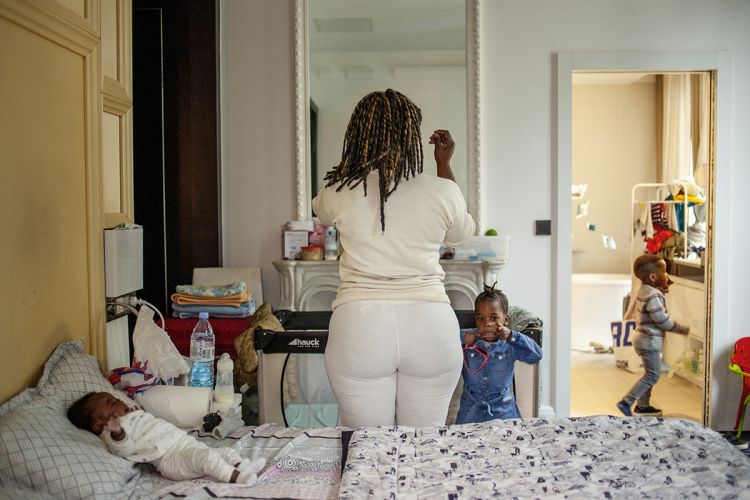

Doriane is a young mother of 3-year-old twins and a 5-month-old daughter.
Of Cameroonian origin, she arrived in France in 2019. “I used to spend two days in one place, three days in another, and then a fortnight elsewhere. When she joined Hotel L in June 2021, she was six months pregnant. “I needed a bigger space,” she explains. Today, her baby sleeps peacefully in her pram, close to her and her two other children.
Doriane is being harassed and blackmailed by her French ex-partner who is accused of naturalizing the children of migrant women. Here at Centre L, she feels safe and supported by social and legal services. -
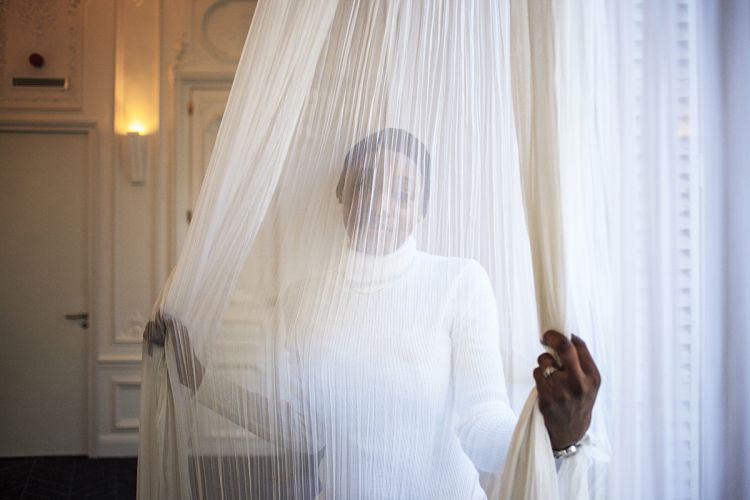

Aissatou poses in the large living room on the first floor which is transformed on Mondays into a space dedicated to sophrology, into a yoga room on Tuesdays and into tatamis on Wednesdays for karate classes. Aissatou, a Senegalese woman, arrived in Europe in 2020 from Morocco where she did the “Boza”. In the slang of migrants, this is a difficult crossing. Her application for asylum was rejected. Living on the street in Paris, she was referred to Center L in June 2020. She uses her year of respite to attend the various activities offered by the Center.
-
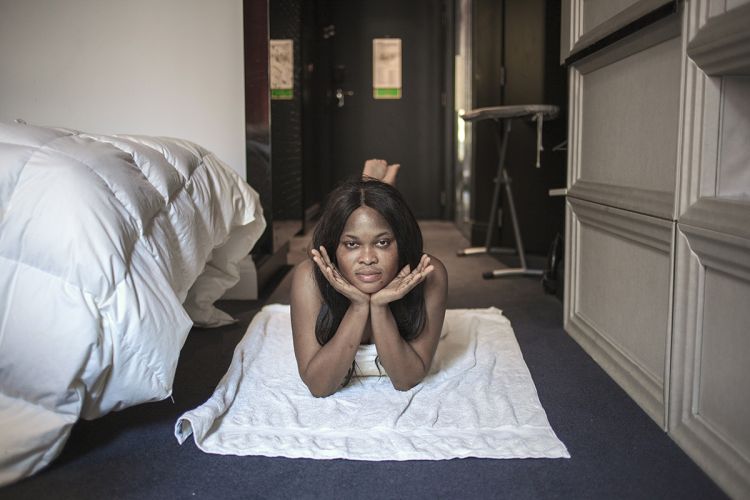

Tina poses on her bed. A young Nigerian woman, very dynamic and full of good will, she is nevertheless going through a difficult time accompanied by CASP lawyers in long procedures to obtain her regularization.
The social workers are at the disposal of the inhabitants of the Centre L on their legal procedures for requesting asylum, leaving human trafficking networks and prostitution networks, and domestic violence. -
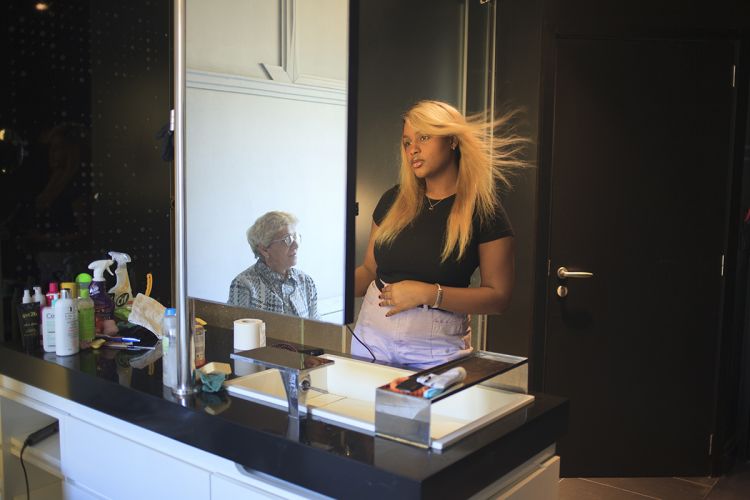

Maimouna is preparing for a job interview at the Mac Donald on Boulevard d’Italie. Arriving in France on 10 January 2020 and unable to pay rent, the 23-year-old Guinean has been living at the Hotel L since it opened.
Radhia, a 65 year old Tunisian, is her room mate and looks after her with kindness. Since its opening, this hotel has become a theatre of sisterhood and intercultural and intergenerational dialogue.
For those who are looking for work, coaching sessions with HR managers are offered by the association La cravate solidaire, housed on the ground floor of the centre. Maimouna has just been granted refugee status. Married at 14 to a man 40 years older than her, she has suffered many assaults, excisions, rapes, and confinement by her husband and his three older wives, all of whom are more jealous than the others.
Thanks to her new status, she will resume her studies in January at the IMEEP training school and aims to become a nurse’s aide. -


Rahma is preparing for a job interview that will lead to a permanent job as a care assistant in a seniors’ home. The 29-year-old is a biologist by training. Her only dream is to have access to social housing, which would allow her to finally undertake a family reunification procedure and find her 4-year-old son.
-
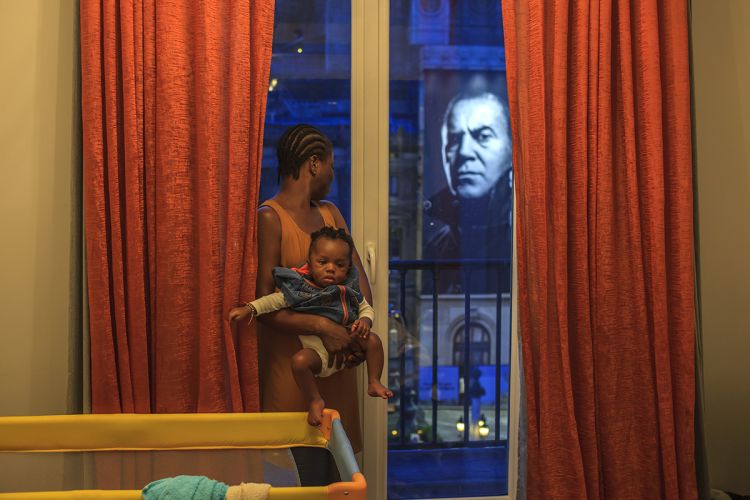

Night falls on the Opéra Garnier and Aisha, a young Ivorian woman, is waiting for Ange’s father to come. At the end of 2020, Aisha arrived straight from Libya. After 8 months of slavery and suffering from a disease, her attackers literally throw her into a zodiac. After a crossing with her eyes closed, she ends up in Italy where she meets Abdoul, Ange’s father. Both undocumented and homeless, the state decides to give Aisha a break in the L centre to receive her first little son, aged 2, in comfort and to start the asylum process.
2021 / 2022, Paris, France
Publications
A room with a view
Nestled between the very chic Galeries Lafayette and the Opéra Garnier, in the heart of Paris’ posh 9th arrondissement, a former five-star luxury hotel (the W), which has never reopened since the first confinement, has been temporarily transformed until April 2022 into an emergency reception centre for 80 women and 62 children in exile. More than an emergency shelter, the “L” is intended to be a place of respite. Like a bubble outside of time to allow the women to recover for a few months. And in this slow reconstruction, comfort is important.The rooms, most of which are single, are spacious, bright and equipped with soft king size beds – one of the vestiges left by the luxury hotel. For these women, who are used to being transported at the rate of the places available in the social hotels, they finally have a time of respite, a year to rebuild themselves. 99% of these women are exiles, having fled excision, forced marriage, domestic violence or prostitution. Being welcomed in a beautiful and comfortable place, with a space that allows for privacy, has a real impact.
The former Hotel W has been reinvested as a Centre L since May by the CASP association (Centre d’Action Sociale Protestant). This association, which is recognised as being of public utility, manages 70 emergency accommodation centres in the Ile-de-France region. It gave me exclusive access to document this project.
“A Room with a View” documents in two stages this initiative, which came into being in the wake of the health crisis and the ensuing tourism crisis in the capital.
1. Focus on the reconstruction and well-being at the heart of the vital process of these women and children. Sophisticated, elegant and original portraits will be made in creative consultation with the subjects, an air of fashion photography that reveals the invisible. In this luxurious setting, the dichotomy Migrants, Tourists, Expats is erased. These women and children are represented with dignity, the visual impact of the portraits reveals their strength.
2. In their rooms, archive photos, remnants of their past, and post-it notes with small words in French are stuck to the walls. I have access to the witness room / testimony 219 to set up a visual installation in collaboration with the residents and the social workers. A photo-booth with a pleated white drapery as a background is set up as a goodbye to these walls.
A collage of photographs takes shape to leave an imprint and an open reflection on the new occupants. The hotel will be demolished to be transformed into offices by the company Assembly which owns it, allowing me to visually document the renovation of this room. This photographic art installation and its own destruction symbolise both the precariousness of these lives, and that of social work.
Project supported by CASP Association and by the French government – Direction régionale des affaires culturelles (DRAC) des Pays de la Loire
